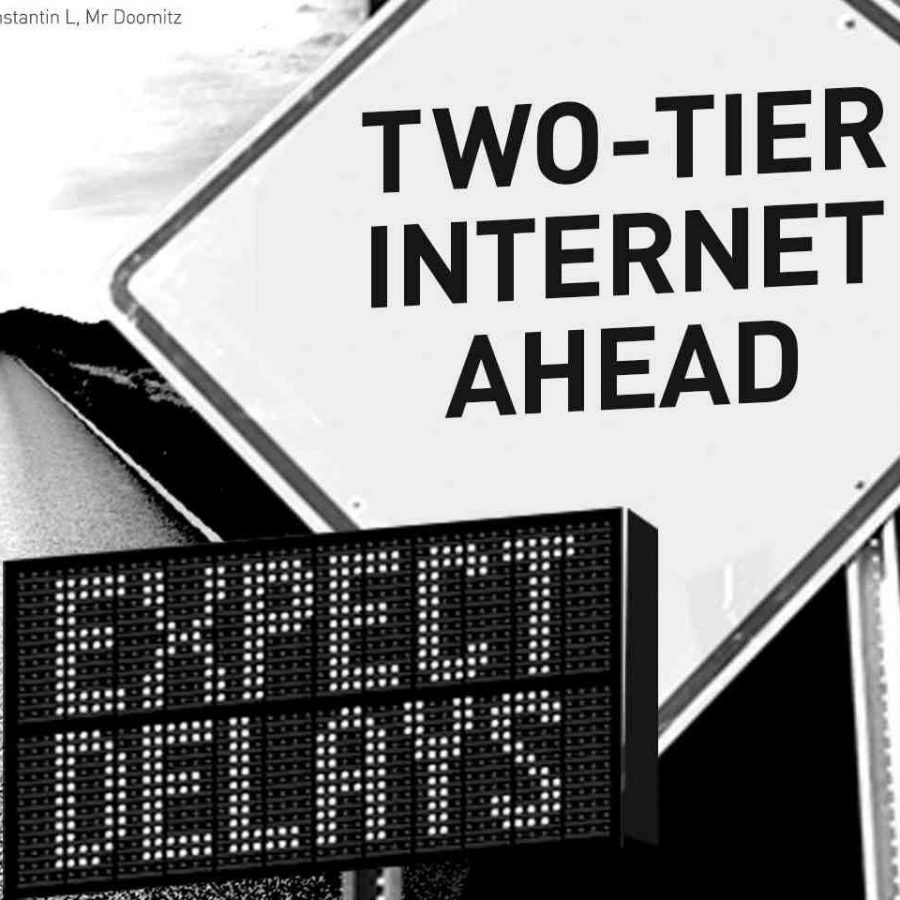Net neutrality: keeping the internet equal for everyone
Photo courtesy of ACLU
As the FCC begins to remove regulations associated with their 2015 net neutrality rulings, many wonder if leaving corporations to control the internet is a bad idea.
November 28, 2017
Net neutrality is something that many may have never heard about, but it defines the way you and everyone else uses the internet, and right now it’s under attack.
Net neutrality is a law passed in 2015, and it makes it illegal for any company that provides internet, like Verizon or T-Mobile, to slow down your speed for certain websites that they don’t like and requires equal access to all sites. Donald Trump’s new Federal Communications Commission chairman Ajit Pai is attempting to get rid of net neutrality and a free and open internet.
If net neutrality is taken away, your internet provider could stop you from viewing any content that they don’t like. For example, if the Washington Post published a negative article about Verizon, Verizon could stop anyone that has Verizon from viewing anything on the Washington Post’s website, and it would be completely legal. If Twitter decided not to promote AT&T, then they could just stop anyone who has AT&T from going on Twitter. But these scenarios aren’t even the worst outcomes of removing net neutrality. If every internet provider met together and decided to all charge triple the price for the same speed you were getting before, they could, and if a new company came up offering cheaper internet, larger companies could block out the cheaper company.
Companies like Verizon could decide which voices you heard and which ones you didn’t every time you used your phone. Every opinion that Verizon didn’t agree with would never be seen by their customers. They could charge you to view certain websites, or for extra speed, without any regulations.
Examples of this occurring before the passage of net neutrality are everywhere, one of which occurred in 2011. At the time, Verizon, T-Mobile, and AT&T were working together on a way to pay for things with your phone, which was called ISIS at the time, but was changed to Softcard for obvious reasons. At the same time Google released Google Wallet, which had the same function as Softcard. To avoid competition, Verizon, T-Mobile, and AT&T all blocked Google Wallet from their phones. Since net neutrality wasn’t around, Google couldn’t do anything about it.
The internet is a common resource in many of the things Americans do every day, and allowing big businesses to control something so integral to society is probably one of the worst things that could happen to the country, and the arguments against keeping net neutrality are slim.
Pai claims that net neutrality stops companies from innovating and investing in faster internet.
“There is a study by a highly respected economist that says that among the top 12 internet service providers in terms of size, investment is down by 5.6 percent, or several billion dollars, over the last two years,” Pai said in an interview with PBS.
Who this ‘respected economist’ is could be anyone’s guess, but it’s clear that net neutrality is the only way to keep the internet equal for everyone.





